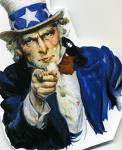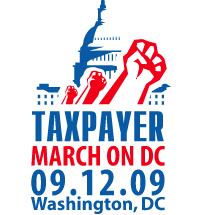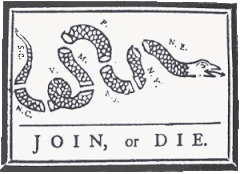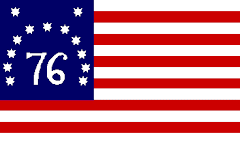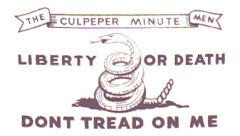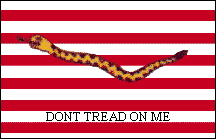In the Obama White House, where political gain is the coin of the realm, national security is merely one more chip to be tossed into the pot.
Employing (because it is all he knows how to do) warmed-over, left-wing talking points, Obama repeated the hackneyed old mantra that the policies which kept America safe for 7 years after the tragic attacks of 9/11 have actually made America, well, less safe.
The logic is tortured, tired, and was best left on the campaign trail, where he fed it to the Kos crowd on a daily basis, and where they ate it up like a crunchy granola bar laced with hashish. In other words, it met all of their minimum daily requirements for Bush/Cheney bashing, got them high on America-hatred, and left them ravenously hungry for more.
Speaking from notes at the American Enterprise Institute, shortly after the President's teleprompter winked off, former Vice President Cheney simply took Barack to school.
Exposing Obama’s stump-speech rhetoric as a not-so-veiled partisan attempt to yet again demonize the former administration, Cheney laid out in clear and concise terms the thinking and strategy behind the Bush Administration’s response to the attacks on 9/11. In doing so, he exposed the mortal danger into which Obama puts the citizens of this country, the citizens he has sworn to protect.
Cheney:
In 1993, they bombed the World Trade Center, hoping to bring down the towers with a blast from below. The attacks continued in 1995, with the bombing of U.S. facilities in Riyadh, Saudi Arabia; the killing of servicemen at Khobar Towers in 1996; the attack on our embassies in East Africa in 1998; the murder of American sailors on the USS Cole in 2000; and then the hijackings of 9/11, and all the grief and loss we suffered on that day.
Nine-eleven caused everyone to take a serious second look at threats that had been gathering for a while, and enemies whose plans were getting bolder and more sophisticated. Throughout the 90s, America had responded to these attacks, if at all, on an ad hoc basis. The first attack on the World Trade Center was treated as a law enforcement problem, with everything handled after the fact - crime scene, arrests, indictments, convictions, prison sentences, case closed.
That's how it seemed from a law enforcement perspective, at least - but for the terrorists the case was not closed. For them, it was another offensive strike in their ongoing war against the United States. And it turned their minds to even harder strikes with higher casualties. [snip]
To make certain our nation country never again faced such a day of horror, we developed a comprehensive strategy, beginning with far greater homeland security to make the United States a harder target. But since wars cannot be won on the defensive, we moved decisively against the terrorists in their hideouts and sanctuaries, and committed to using every asset to take down their networks. We decided, as well, to confront the regimes that sponsored terrorists, and to go after those who provide sanctuary, funding, and weapons to enemies of the United States. We turned special attention to regimes that had the capacity to build weapons of mass destruction, and might transfer such weapons to terrorists.
We did all of these things, and with bipartisan support put all these policies in place. It has resulted in serious blows against enemy operations ... the take-down of the A.Q. Khan network ... and the dismantling of Libya's nuclear program. It's required the commitment of many thousands of troops in two theaters of war, with high points and some low points in both Iraq and Afghanistan - and at every turn, the people of our military carried the heaviest burden. Well over seven years into the effort, one thing we know is that the enemy has spent most of this time on the defensive - and every attempt to strike inside the United States has failed. [snip]
In the years after 9/11, our government also understood that the safety of the country required collecting information known only to the worst of the terrorists. And in a few cases, that information could be gained only through tough interrogations.
In top secret meetings about enhanced interrogations, I made my own beliefs clear. I was and remain a strong proponent of our enhanced interrogation program. The interrogations were used on hardened terrorists after other efforts failed. They were legal, essential, justified, successful, and the right thing to do. The intelligence officers who questioned the terrorists can be proud of their work and proud of the results, because they prevented the violent death of thousands, if not hundreds of thousands, of innocent people.
Our successors in office have their own views on all of these matters.
By presidential decision, last month we saw the selective release of documents relating to enhanced interrogations. This is held up as a bold exercise in open government, honoring the public's right to know. We're informed, as well, that there was much agonizing over this decision.
Yet somehow, when the soul-searching was done and the veil was lifted on the policies of the Bush administration, the public was given less than half the truth. The released memos were carefully redacted to leave out references to what our government learned through the methods in question. Other memos, laying out specific terrorist plots that were averted, apparently were not even considered for release. For reasons the administration has yet to explain, they believe the public has a right to know the method of the questions, but not the content of the answers.[snip]
...we promised an all-out effort to protect this country. We said we would marshal all elements of our nation's power to fight this war and to win it. We said we would never forget what had happened on 9/11, even if the day came when many others did forget. We spoke of a war that would "include dramatic strikes, visible on TV, and covert operations, secret even in success." We followed through on all of this, and we stayed true to our word.
To the very end of our administration, we kept al-Qaeda terrorists busy with other problems. We focused on getting their secrets, instead of sharing ours with them. And on our watch, they never hit this country again. After the most lethal and devastating terrorist attack ever, seven and a half years without a repeat is not a record to be rebuked and scorned, much less criminalized. It is a record to be continued until the danger has passed.
Along the way there were some hard calls. No decision of national security was ever made lightly, and certainly never made in haste. As in all warfare, there have been costs - none higher than the sacrifices of those killed and wounded in our country's service. And even the most decisive victories can never take away the sorrow of losing so many of our own - all those innocent victims of 9/11, and the heroic souls who died trying to save them.
For all that we've lost in this conflict, the United States has never lost its moral bearings. And when the moral reckoning turns to the men known as high-value terrorists, I can assure you they were neither innocent nor victims. As for those who asked them questions and got answers: they did the right thing, they made our country safer, and a lot of Americans are alive today because of them.
This is clear-thinking, honest leadership - something that is sickeningly absent in Washington these days. Richard Cheney has laid out in a clear and concise manner the dangers we face not only from Islamic terrorists, but from the halls of power in our own country. Many of us have taken heed, many have not. What remains to be seen is whether or not the voting public has the intelligence and courage to do something about it.
Indeed, I often wonder now if the majority of Americans even want to.
If you have not yet done so, I urge you all to watch this speech in its entirety; here is the link to the first part, the rest of the links are on the target page:
Part 1
